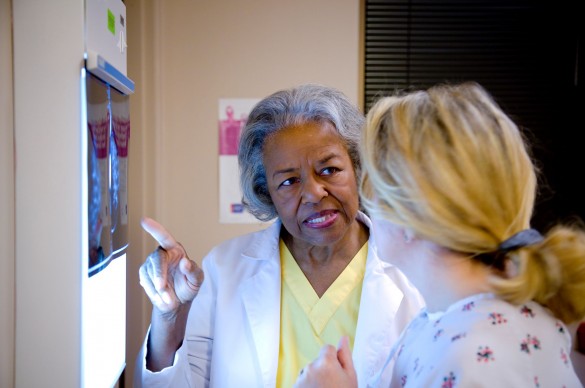Howard Koh, MD, MPH, is the Assistant Secretary for Health at the U.S. Department of Health and Human Services.
Almost everyone has lost a loved one to cancer. But this tragedy is only compounded when we realize afterwards that some of these cancers could have been prevented. That's why April, National Cancer Control Month, represents a vital opportunity for all of us. We can all commit to improving efforts for cancer prevention for ourselves and the people we care about. Of course, treatment strategies are critically important, too. As a physician who has cared for patients for more than 30 years, I know that effective medical care can heal and transform lives. But as the Assistant Secretary for Health at the US Department of Health and Human Services (HHS), I also believe that our society can do much more to promote cancer prevention so that illness doesn't occur in the first place. Colorectal cancer is a perfect example of a cancer that, in many cases, can actually be prevented. Of all the cancers that affect both men and women, colorectal cancer is the second leading cause of cancer death and the leading cause of cancer death in non-smokers. But in recent decades, the science of colorectal cancer screening has advanced to make it a highly effective, truly life-saving tool. Screening can detect cancer early, when treatment is more effective, and even prevent cancer through the removal of precancerous polyps. Moreover, other strategies, such as a healthy nutrition and adequate physical activity, can help lower colorectal cancer risk. Unfortunately, however, not enough people take advantage of colorectal cancer screening opportunities. Despite the proven efficacy of screening, about one in three adults between 50 and 75 years old roughly 23 million people are not getting screened as recommended. Furthermore, in many cases, screening may not be accessible or available, particularly in underserved communities. As a result, far too many people die from colorectal cancer. The most recent figures (2010) note that 132,000 people are diagnosed with colorectal cancer each year and nearly 52,000 died from it. To accelerate progress in this critical area, HHS has been pleased to partner with the American Cancer Society and the National Colorectal Cancer Roundtable. Together, we have committed to making screening an easier choice. In that regard, we will be launching several new demonstration projects to address disparities in colorectal cancer screening that impact lower-income and minority populations. Specifically, we are linking community health centers with gastroenterology specialists and other health professionals to create better systems for colorectal cancer screening and follow-up care. These projects, supported with both private and public funds, will also focus on the important role of navigators in guiding people through the screening process and breaking down barriers to access. At HHS, a number of our agencies are making cancer prevention a top priority. The Centers for Disease Control and Prevention is spearheading surveillance and screening programs; the Health Resources and Services Administration has committed to tracking colorectal cancer screening rates in community health centers and is working with the GI community to get more patients screened; the Centers for Medicare and Medicaid Services is in charge of relevant payment coverage issues; and the National Institutes of Health continues to further research in this key area. Also, the full implementation of the Affordable Care Act has brought heightened attention to colorectal cancer screening. The Affordable Care Act makes high-value preventive services, such as colorectal cancer screening, accessible to millions of men and women, often without deductibles or co-pays. People can choose between sigmoidoscopies, colonoscopies or stool-based-tests:ξ The best test is the one that gets done! We hope that such efforts will move the current national colorectal cancer screening rates of about 60% closer to the nation's Healthy People goal of 70.5% by 2020. The National Colorectal Cancer Roundtable partners and the American Cancer Society have set an even more ambitious goal: to achieve a colorectal cancer screening rate of 80% in the US by 2018. We believe such goals are not just aspirational but also achievable. An old African proverb states: If you want to go fast, go alone. If you want to go far, go together. Let's travel together on this journey of cancer prevention and see how far we can go to accomplish our goals of saving lives and protecting the gift of health.

